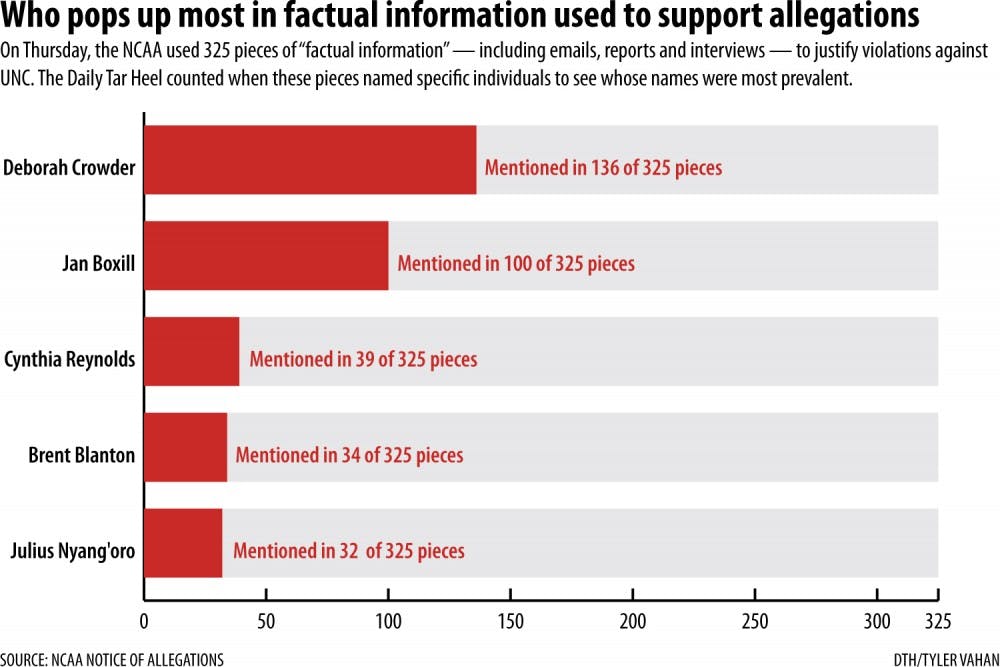In a notice of allegations released Thursday by UNC, the NCAA alleged multiple level one violations and cited a history of infractions that indicate a lack of institutional control at UNC.
The notice outlined five allegations, four of which are level one infractions, which "seriously undermine or threaten the integrity of the NCAA collegiate model."
The alleged violations mirror the academic irregularities Kenneth Wainstein found in October 2014.
The NCAA investigation found classes within the Department of African and Afro-American Studies that had minimal faculty instruction, as first reported by Wainstein. The NCAA referred to the use of paper classes an "impermissible benefit" rather than using the language "academic fraud."
Though all students had access to the paper classes, the NCAA determined that academic irregularities in the AFAM department were impermissible benefits given specifically to student-athletes.
"The high level of involvement by athletics academic counselors in the administration of these anomalous AFRI/AFAM courses relieved student-athletes of the academic responsibilities of a general student," the notice of allegations said.
The first allegation states student-athletes received impermissible benefits that were not offered to other students from the fall semester of 2002 through the summer session of 2011. In the AFAM department, academic counselors through the Academic Support Program for Student-Athletes made special arrangements for student-athletes. These arrangements included requesting course offerings within the department, obtaining assignments for student-athletes, suggesting assignments, turning in papers and recommending grades.
In addition, the University allowed 10 student-athletes from 2006 to 2011 to graduate with more than the allotted independent study credits.
The second allegation states that from April 2007 to July 2010, Jan Boxill, former director of the Parr Center for Ethics, faculty chairwoman and a women's basketball counselor, provided "impermissible benefits" in the form of academic assistance to women's basketball players.




